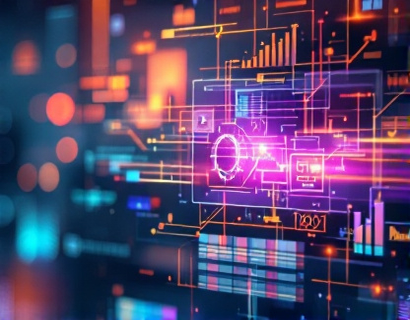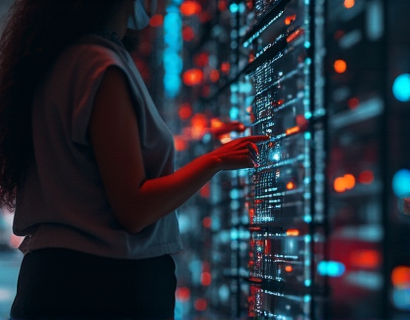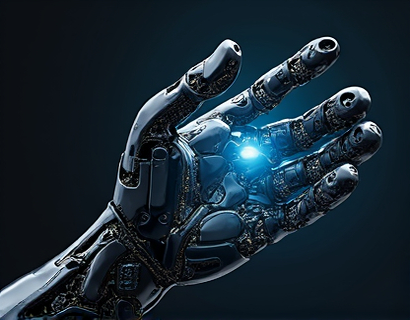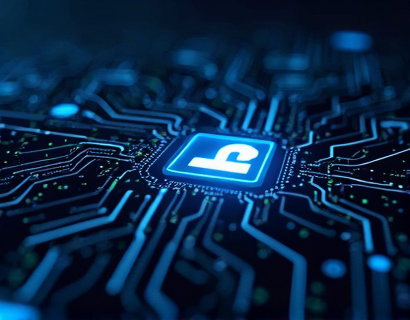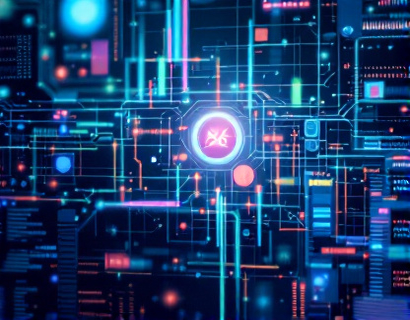Crypto and AI Synergy: Revolutionizing Digital Engagement with Advanced Ucosystem Solutions
The intersection of blockchain technology and artificial intelligence (AI) is giving rise to a new era of digital engagement, characterized by enhanced security, personalization, and interaction. This synergy is not just a technological curiosity but a transformative force that is reshaping how users interact with digital platforms and services. This article delves into the profound impact of this integration, exploring its potential to create more secure, personalized, and engaging user experiences. For tech enthusiasts and professionals, understanding this synergy is crucial as it opens up new avenues for innovation and growth in the digital landscape.
Enhanced Security Through Blockchain and AI
One of the most significant benefits of combining blockchain and AI is the substantial improvement in security. Blockchain's inherent properties, such as decentralization, immutability, and transparency, provide a robust foundation for secure transactions and data storage. AI, with its advanced analytics and machine learning capabilities, enhances this security by detecting and mitigating threats in real-time. For instance, AI algorithms can analyze patterns in blockchain transactions to identify anomalies that may indicate fraudulent activity. This proactive approach to security ensures that user data and assets are protected against emerging threats.
Moreover, AI can be used to strengthen the authentication processes on blockchain networks. Traditional methods of verification, such as passwords, are vulnerable to attacks. AI-driven biometric authentication, which uses unique biological traits like fingerprints or facial recognition, offers a more secure alternative. When integrated with blockchain, these biometric data points can be stored securely, ensuring that only authorized users gain access to sensitive information. This dual-layer security approach not only enhances user trust but also complies with stringent regulatory requirements.
Personalization at Scale
Personalization is a key driver of user engagement in the digital world. AI algorithms excel at analyzing vast amounts of data to understand user preferences and behaviors, enabling highly tailored experiences. When combined with blockchain, this personalization can be taken to new heights. Blockchain ensures that user data is owned and controlled by the individuals, providing transparency and consent management. This empowers users, as they can choose what data to share and with whom, while still enjoying personalized services.
For example, in the realm of content recommendation, AI can analyze a user's interaction history on a blockchain-based platform to suggest articles, videos, or products that align with their interests. This level of personalization not only enhances user satisfaction but also increases engagement and retention. Additionally, blockchain's smart contracts can automate the delivery of personalized content, ensuring that users receive relevant information without the need for intermediaries, thus reducing latency and improving the overall experience.
Seamless and Interactive User Interactions
Interactive user experiences are essential for keeping users engaged and loyal. The integration of AI and blockchain facilitates the creation of dynamic and responsive interfaces that adapt to user behavior in real-time. AI-powered chatbots, for instance, can provide instant and context-aware assistance, enhancing customer support and user guidance. These chatbots can operate on blockchain-based platforms, ensuring that user interactions are secure and private.
Furthermore, blockchain-based gaming and virtual worlds benefit greatly from AI integration. AI can generate realistic NPC (non-player character) behaviors, create dynamic game environments, and even design unique content based on player interactions. This not only enriches the gaming experience but also ensures that each user's journey is unique and engaging. The use of blockchain ensures that in-game assets and achievements are verifiable and transferable, adding a new dimension to digital ownership and interaction.
Use Cases in Various Industries
The synergy between blockchain and AI is not limited to digital engagement; it extends across various industries, each benefiting in unique ways. In finance, this combination can lead to more secure and efficient trading platforms, where AI algorithms analyze market trends and blockchain ensures transparent and tamper-proof transactions. In healthcare, AI can analyze medical data stored on blockchain to provide personalized treatment recommendations, while ensuring patient data privacy and compliance with regulations.
In the supply chain, blockchain provides a transparent and immutable record of transactions, while AI can optimize logistics and predict maintenance needs for equipment. This combination enhances efficiency, reduces costs, and improves trust among stakeholders. The retail sector can leverage AI for inventory management and customer insights, with blockchain ensuring the authenticity and provenance of products. Each industry stands to gain from the enhanced security, personalization, and interaction offered by this technological synergy.
Challenges and Considerations
Despite the numerous benefits, the integration of blockchain and AI also presents challenges that need to be addressed. One of the primary concerns is the computational complexity and resource consumption associated with both technologies. AI algorithms, especially those involving deep learning, require significant computational power, which can strain blockchain networks. To mitigate this, researchers are exploring more efficient AI models and optimizing blockchain architectures to handle the increased load.
Another challenge is the regulatory landscape. As blockchain and AI technologies evolve, regulatory frameworks must adapt to ensure they promote innovation while protecting users and maintaining ethical standards. Collaboration between technologists, policymakers, and industry stakeholders is essential to create a balanced and forward-looking regulatory environment.
Future Prospects
The future of digital engagement through the synergy of blockchain and AI is promising. As technology continues to advance, we can expect even more sophisticated applications that further enhance security, personalization, and interaction. The development of interoperable blockchain platforms will enable seamless integration across different ecosystems, fostering a more connected and cohesive digital world. AI advancements, such as edge computing and quantum AI, will further push the boundaries of what is possible, making digital experiences more intuitive and immersive.
For tech enthusiasts and professionals, staying informed about these developments is crucial. The convergence of blockchain and AI is not just a trend but a fundamental shift in how we approach digital engagement. By understanding and embracing this synergy, we can unlock new possibilities and drive innovation in the digital landscape.











